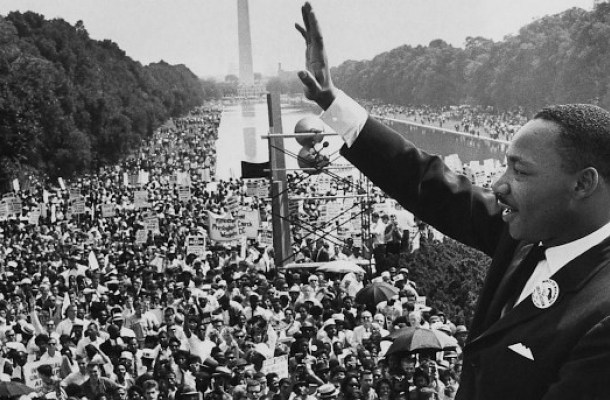
Bishop Leon Benjamin lamented the fact that people are still banned in certain places nearly 60 years after the iconic "I have a dream" speech of Martin Luther King Jr. (MLK), alluding to the August 28, 1963 discourse by the famous American civil rights leader in which he described his vision of America.
"Why are we afraid to go to certain places and to show up? Has something happened to our nation where there is a type of tyrant rule and people don't feel free?" Benjamin asked during the January 17 episode of "B-Alert News" on Brighteon.TV, which coincides with the celebration of MLK's Day in the United States.
Benjamin stopped short of saying that segregation is very much alive in America after all those years.
"It's time for not just 'I have a dream' speech. We have a purpose, not just a dream; we have the power – not just a dream; we have unity – not just a dream. Obviously, MLK understood the freedoms that were under the gun – even economic freedoms for his very own people. But not just for his people, not just for Black people. Because when you put oppression on one group of people, you literally put it on all people," Benjamin said.
"And when I say black lives, I'm not talking about the BLM [Black Lives Matter] movement. I'm not talking about a communist organization that pushes racism and poverty and all types of falsities that hate Christianity and hate our government, our constitutional republic. No, I'm talking about all lives matter. And MLK fought not just for his people. He fought for the freedoms and the rights of all people."
Vaccine mandates create two classes of citizens
With President Joe Biden's vaccine mandate, the government is essentially creating two classes of citizens: the vaccinated and the unvaccinated. One can work, the other cannot; one can participate in the community, the other cannot. Biden and his cohorts are dividing the nation. (Related: Segregation returns to America as universities threaten, harass, intimidate unvaxxed students.)
"The message of MLK was different from the message that we have today. But then it was similar," Bishop said. "There's still a fight, and where do we take that fight? To many places we have not reached, and that's the purpose of this show."
Segregation has become a worldwide phenomenon that even a Third World country like the Philippines is now practicing it. In early January, Philippine President Rodrigo Duterte announced that people who have not taken the Wuhan coronavirus (COVID-19) vaccine will be arrested if they disobey stay-at-home orders as infections hit a three-month high.
Philippines locks down unvaccinated
In a televised address, Duterte asked community leaders to make sure that unvaccinated people were confined to their homes.
"If they refuse, if they go out their [houses] and go around the community, they can be restrained. If they refuse, the chairman is empowered now to arrest recalcitrant persons," Duterte said. Last year, Duterte threatened people who refuse to get vaccinated with jail time.
The Philippines has also banned unvaccinated people from public transportation. The ban applies in the heavily congested Metro Manila, where most new cases have emerged.
The country's Human Rights Commission called the ban "restrictive and discriminatory."
It could also lead to infringements on privacy rights and other human rights violations, according to Leila De Lima, a detained senator and critic of Duterte.
Australia, Austria to implement vaccine mandate
In Australia, COVID-19 vaccination will become mandatory starting next month. Police checks will be carried out beginning March 15.
The mandate will apply to Australian residents aged 18 and older, with exemptions for pregnant women and people who cannot receive the vaccine on medical grounds.
On December 1 last year, European Commission President Ursula von der Leyen advised the member states of the European Union to consider mandatory vaccination against COVID-19.
"How we can encourage and potentially think about mandatory vaccination within the EU, this needs discussion," said von der Leyen. "This needs a common approach, but it is a discussion that I think has to be led."
Austria was the first European country to announce compulsory vaccination against COVID-19, which it plans to implement in February.
Watch the January 17 episode of "B-Alert News" with Bishop Leon Benjamin below. Cath new episodes of "B-Alert News" every Monday at 10-11 a.m. on Brighteon.TV.
Follow VaccineWars.com for more news related to COVID-19 vaccine mandates around the world.
Sources include:
Please contact us for more information.


















